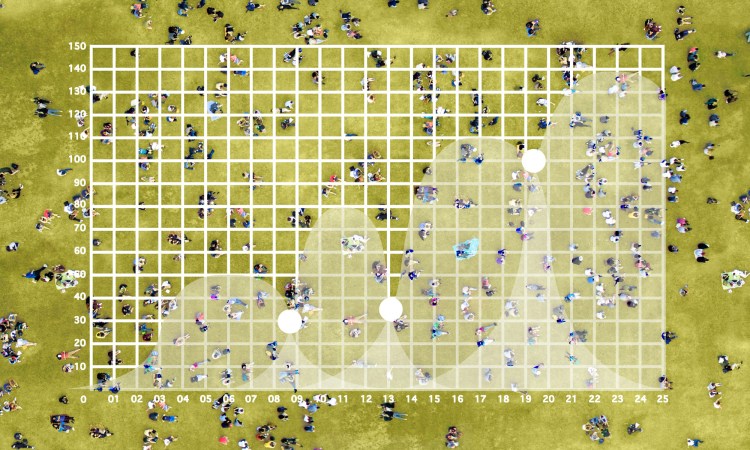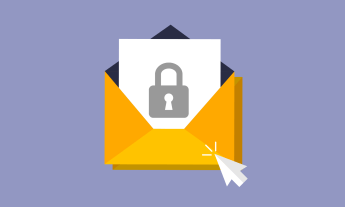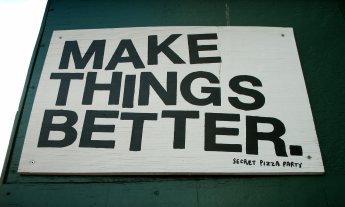
Why government leaders should publish the data they’re collecting — and why citizens everywhere should push them to do so.
Think about governments and data and your mind likely turns to secrecy, surveillance, Edward Snowden, Chelsea Manning. And it’s true: as long as we’ve had governments they’ve gathered data on us, and lots of it. Now a newish movement — starting in the late 2000s and gaining momentum over recent years — is pushing for governments around the world to open up access to that data. This, of course, raises questions about who actually owns that data — and the implications of what happens when the information is made public. TED Fellow Yale Fox, creator of a consumer search engine that uses city government data to rate landlords and rental properties, explains why open data matters so much.
Open government data means making information contained in databases freely available to businesses and people. “The term evolved out of the open source movement that makes software source code open and free to modify and distribute,” says Fox. “Open government data means making information contained in government databases freely available to businesses and people.” Government databases are generally created for public benefit using taxpayer money, so advocates argue that the information in these databases belongs in the public domain. The important shift is that it’s only with recent technological advances that it has even become possible to organize, aggregate, analyze and share that data quickly and efficiently.
The journey to opening government data. Decades before the term “open data” emerged, the scientific community had recognized the knowledge-building benefits of sharing research results. Intending to translate this principle into the realm of government data, 30 internet thinkers and activists gathered in Sebastopol, California, in December 2007 to hammer out the principles of how government could make its data available. Among them were Creative Commons founder Lawrence Lessig, the late free-knowledge activist Aaron Swartz and open source advocate Tim O’Reilly. The group’s conclusion: this data should be complete, primary, timely, accessible, machine-processable, nondiscriminatory, nonproprietary and license-free.
In 2009, on his first day in office, President Obama issued a memo on transparency and open government, leading to the creation of data.gov, which aims to improve public access to certain machine-readable datasets generated by the executive branch of the federal government. As of August 2016, that repository had grown to include over 180,000 sets of data — helped in part by the US Open Government Directive, which required all federal agencies to post at least three high-value datasets. But the movement isn’t just gaining momentum in the US — worldwide, more than 50 countries now have open data initiatives.
How open data can improve healthcare. Okay, so far, so open. But what can anyone actually do with open data? Well, a lot. “Individual citizens and the private sector can use open data as raw material to improve existing government services, create alternative services and empower consumers,” says Fox. For instance, in 2014, Centers for Medicare and Medicaid Services launched Open Payments, a publicly searchable website offering data on the financial relationships of doctors and health care manufacturers — so you can find out if your physician has received any fees for, say, research or speaking engagements from a pharmaceutical company. “Patients can arm themselves with more information before making vital healthcare decisions,” says Fox — and more than that, the platform is a place for further innovation: “Open Payments invites anyone to come up with new and interesting ways to work with the data it gathers to make apps or tools that increase transparency and improve services.”
Follow the money: open data can detect government corruption. “The nonprofit Sunlight Foundation tracks influence on US government and politics,” says Fox. “One of its tools, Influence Explorer, gives the public real-time access to campaign finance reports of all federal candidates running for office. Influence Explorer was the first tool to uncover that, in 2014, total spending on the North Carolina Senate race topped $114 million – the most expensive Senate contest to date.” Meanwhile, the nonprofit organization Open Secrets offers a database that compiles total lobbying spending and lets users easily click through data broken down by year, industries, lobbying firms, top spenders and so on — making it easier for the public to keep tabs on whether certain interests wield undue influence over their public representatives. And data scientist Ben Wellington used New York’s open data to find the city’s worst parking space (watch his TED Talk) — and more recently, helped the city catch a multi-million-dollar budget error.
Slumlords, watch out: open data can help renters make better decisions. Fox’s own company, Rentlogic, curates and integrates multiple data sources — building inspections, public complaints, court records and so on — into a search engine that lets renters scrutinize landlords and properties before signing a lease. “The aim is to create transparency and accountability in the rental housing market,” says Fox, who was inspired to create the service after a bad experience with renting in New York City. “It’s a sort of due diligence for renters, but we’re also encouraging ethical behavior by landlords. Good landlords will see fewer vacancies, and bad landlords will either have to clean up their act — or lose out on tenants.”
But, of course, not all government data is created equal. Some datasets are only available in formats that make the information hard to work with — like PDFs, which are not easily used in real-time web applications. And decisions around which datasets to prioritize still need to be made. For instance, should we focus on infrastructure, politics or the environment? Every city’s, state’s, and country’s needs and concerns are different. “While activists are pushing governments to make these decisions, citizens also need to get involved, to push for the data they want to see,” says Fox.
And why should private enterprise benefit from public data? A rising tide lifts all ships. “We all win when governments open their data,” says Fox. “The private sector has the resources to come up with new and creative ways to deploy the data, by offering services or solving problems.” But, he notes, government benefits too. “Making the data available opens up the possibility of new collaboration between governments, or even within governments, to make data-driven decisions, improve services and be more efficient.” The challenge, then, is for citizens to ask that the data be made available — and then start dreaming of cool things to do with it. “I urge everyone to start dreaming about the possibilities of what we can accomplish with the wealth of data at our fingertips, and then get involved,” says Fox. “Make use of the data already available to tell us something new, solve a problem or shine a light on a pressing civic issue.”












